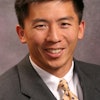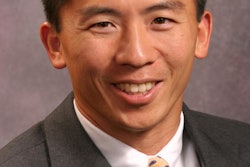As a kid, Dr. Ricardo Ramírez would rise early in the morning during the summers to help toil the land. His parents, who were both farm workers in central California, worked long hours in an effort to provide a better life for their struggling family. In their native Mexico, neither parent made it past the sixth grade, but in America, they knew that the opportunities for obtaining a quality education were readily available to their six children.
“They pushed education on us from the very beginning,” Ramírez says.
Since 2003, Ramírez has been a professor and a rising star at the University of Southern California, where he has gained national recognition for his research on the voting and political behavior of individuals across racial and ethnic lines. He has specifically examined the voting patterns of naturalized citizens and has observed that they have a higher propensity to register and vote.
Ramírez has built an impressive portfolio of scholarship that includes numerous journal articles and a published book titled Transforming Politics, Transforming America: The Political and Civic Incorporations of Immigrants in the United States, which he co-edited with scholars Taeku Lee and S. Karthick Ramakrishnan. He is currently examining the effects of mobilization efforts on Latino voters and the role of gender and ethnicity on career paths in state legislatures since 1990. Since 2006, he has also been a National Science Foundation Minority Postdoctoral Research Fellow at the Institute for Social Science Research at UCLA and spent a year as a visiting research fellow at the Public Policy Institute of California, a non-partisan organization that conducts research on California’s economic, social and political issues.
In the midst of the current political debate about immigration, Ramírez has been examining the increase in hate crimes directed at Latinos, and he is currently trying to get contemporary data about African-American views towards immigrants.
“I always knew he would be successful,” says Dr. Luis R. Fraga, who directed Ramírez’s dissertation, “The Changing Landscape of California Politics: 1990-2000,” while he was a professor at Stanford.
The two first met when Ramírez was an undergraduate at UCLA. Fraga is now the associate vice provost for faculty advancement and a professor of political science at the University of Washington. “Ricardo is a magnificent example of what can happen if people invest in potential scholars. He is a full university citizen and is at the forefront of always asking really good questions and then answering those questions with excellent data.”
As an undergraduate, Ramírez originally contemplated a career as a public interest lawyer. At the time, his thinking was influenced by the death of his brother, who drowned in a swimming pool. Ramírez was dismayed by the actions of the lawyer who took the case. He didn’t believe that he fought hard enough for his family.
“I thought that I wanted to do public interest law and help those who don’t have access to the legal system,” he recalls.
But at UCLA, Ramírez met distinguished scholars like Dr. Fernando Torres-Gil, who later went on to serve as the first assistant secretary for aging in the U.S. Department of Health and Human Services in the Clinton administration. Teaching, he thought, would be an ideal way to make an impact and to mentor a future generation of minority scholars.
“I’ve been very fortunate to have great mentors,” he says. “I happened to be at the right place at the right time and was mentored by big names. I now enjoy working with students and mentoring them.”
Title: Assistant Professor of Political Science and American Studies, University of Southern California
Education: Ph.D., Political Science, and M.A., Education and Administration and Policy Analysis, Stanford University; B.A., Political Science and Chicano Studies, University of California, Los Angeles















